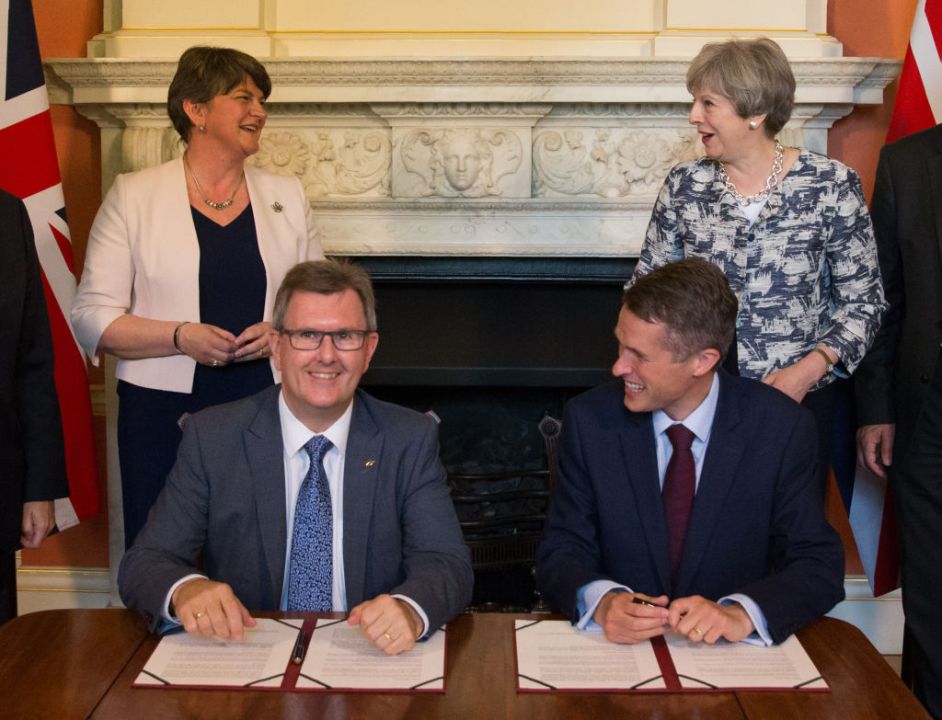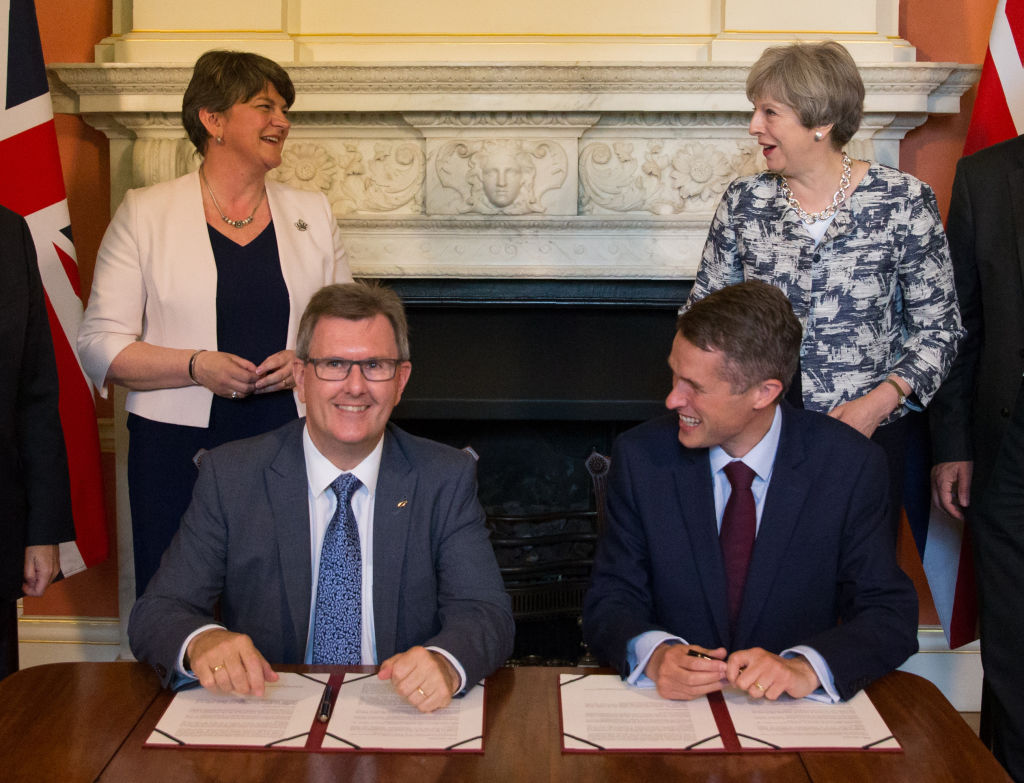The Tory DUP deal has been signed in Downing Street this morning, the text of it is on the government website and there’ll be a statement in the Commons on it later. This is as formal as a confidence and supply deal can get.
So, why were the Tories so keen on such a formal deal? Well, there were three reasons for it. The whips’ office wanted the certainty of a written agreement rather than having to survive hand to mouth; note that the deal was signed by the chief whip not the Prime Minister. The whips’ hope that this certainty will mean both that the government can get its business through and that there won’t be constant speculation about it collapsing. Second, there was a feeling in Downing Street that doing things on a vote by vote basis would turn out to be more expensive than this formal agreement has been. The third was that Theresa May had committed herself to a formal deal straight after the election results had come in. A failure to get one would have made her look even weaker and led to more speculation about how long she could last.
There are Tories, including in the Cabinet, who remain deeply worried about this deal. They fear that the public will come to see it as the Tories using taxpayers’ money to keep themselves in office. Even among May’s close allies there is concern that how much the government spends on everything now—including the Grenfell fire and the tower block emergency—will be contrasted, unfavourably, with what is being given to Northern Ireland.
The DUP are, as this deal shows, canny negotiators. How able they feel to come back to ask for more money will be one of the best signs of the health of the government. If the DUP think that the Tories are no longer scared of another election, they won’t make any more demands. But if they calculate in two years-time that the Tories still want to avoid an election at almost any cost, the price for their support will increase.








Comments